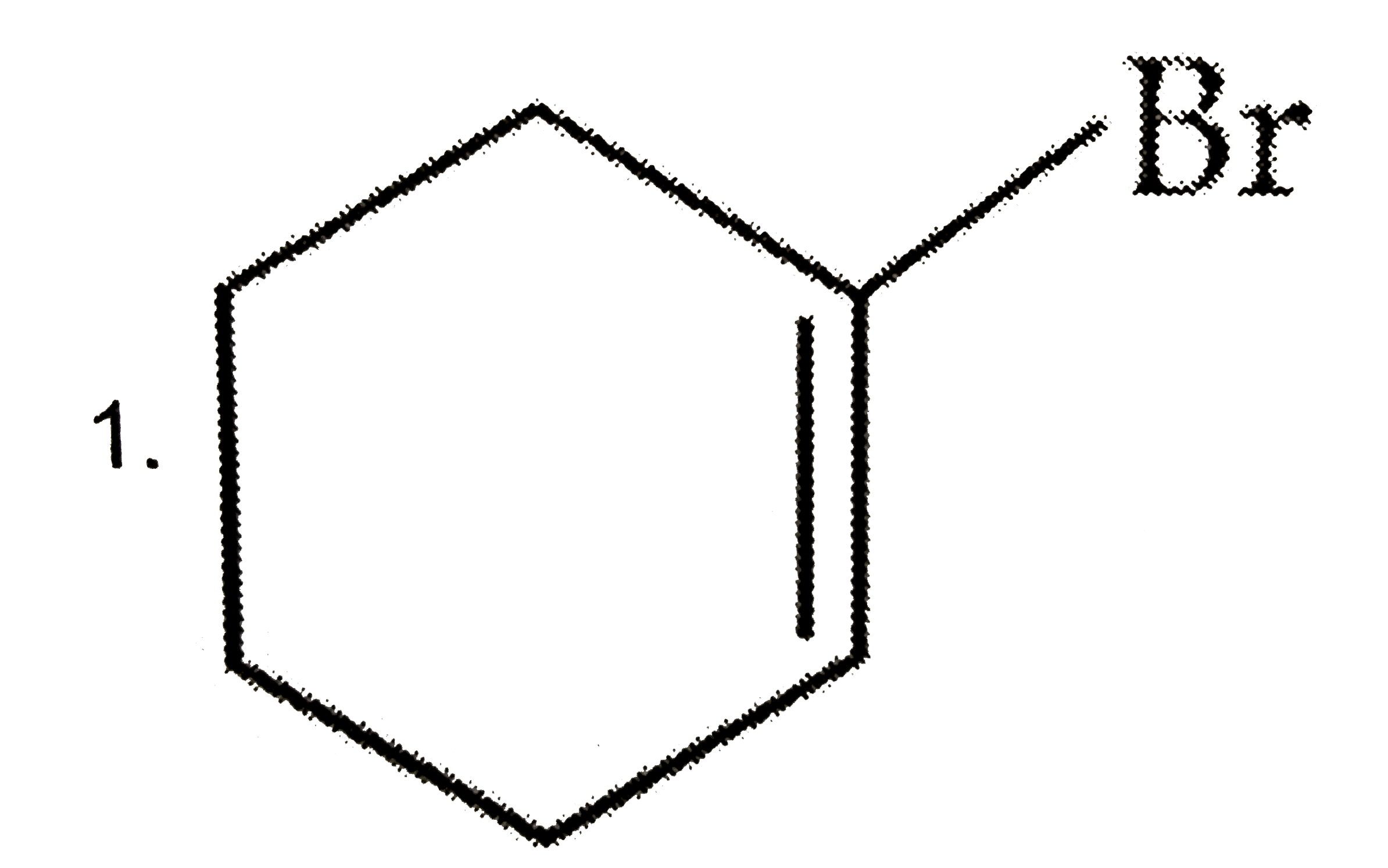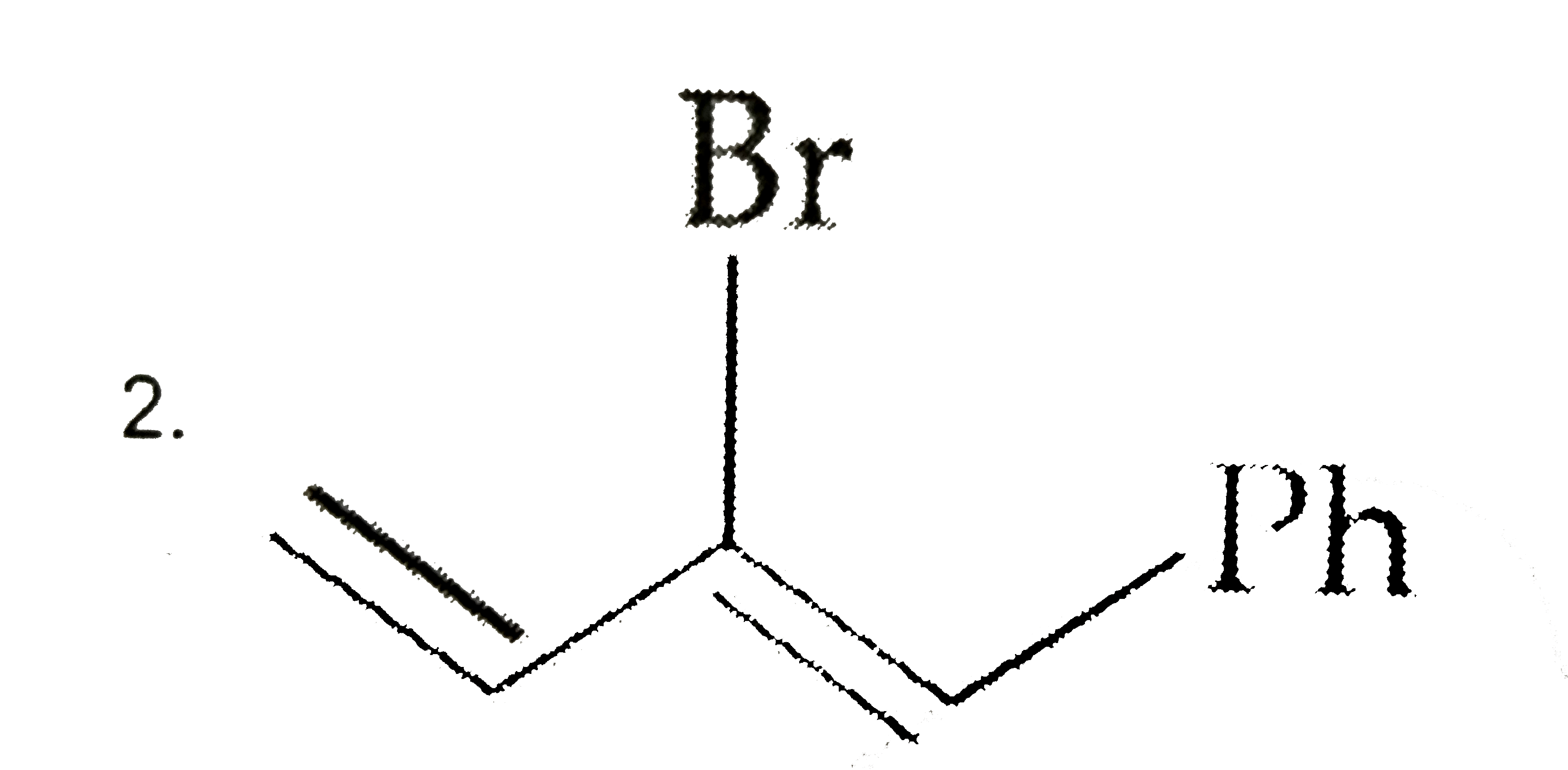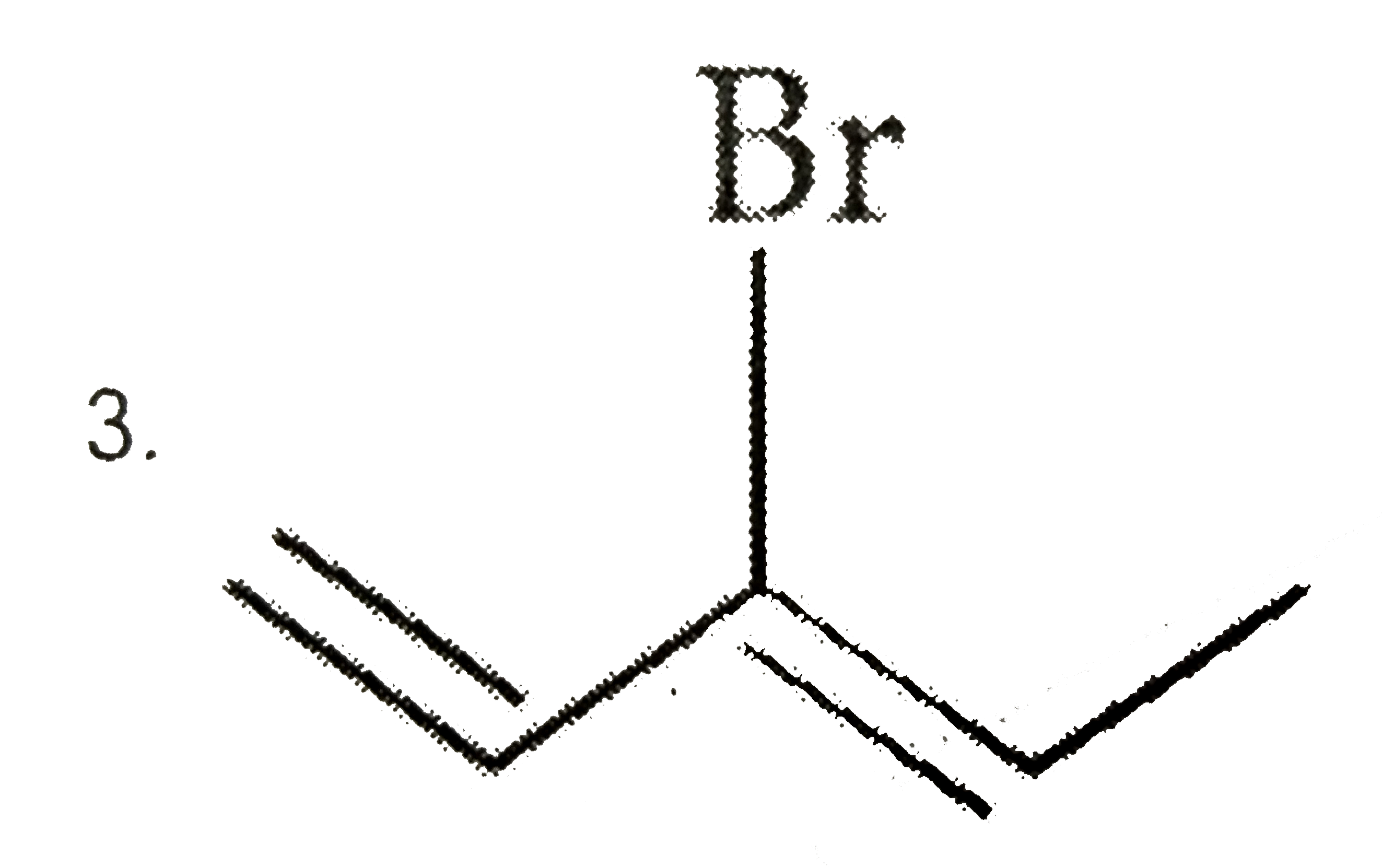Which of the following will most readily give the dehydrohalogenation product ?




The correct Answer is:B
To determine which of the given compounds will most readily undergo dehydrohalogenation, we need to analyze the stability of the resulting carbocation or carbanion formed during the reaction. Dehydrohalogenation typically involves the elimination of a hydrogen halide (HX) from an alkyl halide in the presence of a base, leading to the formation of an alkene.
1. Identify the Compounds: We need to examine the four options provided in the question. Each compound will be analyzed for the potential stability of the carbocation or carbanion formed after dehydrohalogenation.
2. Analyze the Stability of Intermediates:
- The stability of carbocations increases with the number of alkyl groups attached (tertiary > secondary > primary). For carbanions, stability is enhanced by electron-withdrawing groups and decreased by electron-donating groups.
- In this case, we are particularly interested in the presence of groups that can stabilize the negative charge in the carbanion or the positive charge in the carbocation.
3. Consider the Role of Resonance:
- If a compound has a phenyl group (aromatic ring), it can stabilize the carbocation or carbanion through resonance. The phenyl group can delocalize the charge, making the intermediate more stable.
4. Evaluate Each Option:
- Option A: Analyze the structure and determine if there is a phenyl group or any stabilizing groups. If the compound can form a stable carbocation or carbanion, it is a candidate.
- Option B: Similarly, check for the presence of stabilizing groups. If it has an electron-donating group, it may destabilize the carbanion.
- Option C: This option has a phenyl group that can stabilize the carbocation or carbanion through resonance. This makes it a strong candidate for dehydrohalogenation.
- Option D: Evaluate the structure for any stabilizing effects. If it lacks resonance or has destabilizing groups, it will be less favorable.
5. Conclusion: After analyzing the stability of the intermediates formed from each option, the compound with the phenyl group (Option C) is the most favorable for dehydrohalogenation due to the resonance stabilization of the resulting carbanion.
Final Answer:
Option C will most readily give the dehydrohalogenation product due to the stability provided by the phenyl group.
- The stability of carbocations increases with the number of alkyl groups attached (tertiary > secondary > primary). For carbanions, stability is enhanced by electron-withdrawing groups and decreased by electron-donating groups.
- In this case, we are particularly interested in the presence of groups that can stabilize the negative charge in the carbanion or the positive charge in the carbocation.
- If a compound has a phenyl group (aromatic ring), it can stabilize the carbocation or carbanion through resonance. The phenyl group can delocalize the charge, making the intermediate more stable.
- Option A: Analyze the structure and determine if there is a phenyl group or any stabilizing groups. If the compound can form a stable carbocation or carbanion, it is a candidate.
- Option B: Similarly, check for the presence of stabilizing groups. If it has an electron-donating group, it may destabilize the carbanion.
- Option C: This option has a phenyl group that can stabilize the carbocation or carbanion through resonance. This makes it a strong candidate for dehydrohalogenation.
- Option D: Evaluate the structure for any stabilizing effects. If it lacks resonance or has destabilizing groups, it will be less favorable.
Option C will most readily give the dehydrohalogenation product due to the stability provided by the phenyl group.
Topper's Solved these Questions
Similar Questions
Knowledge Check
Which of the following will react most readily with HI ?
ACH3OHB(CH3)3COHCCH3CH2OHD(CH3)2CHOHWhich of the following is reduced most readily?
AIodineBChlorineCFluorineDBromineWhich of the following will give readily a hydrocarbon ?
AR−cOOnaElectrolysis−−−−−−→BRCOOagI2−−→CCH3CH3I2/hv−−−→D(CH3)2CCl2C2H5OH−−−−→
Which one of the following will most readily be dehydrated in acidic condition ?
View SolutionWhich one of the following will most readily be dehydrated in acidic condition ?
View SolutionWhich of the following will be most readily dehydrated in acidic condition ?
View SolutionWhich of the following compounds will be most readily dehydrated ?
View Solutionwhich one of the following will most readily be dehydrated in acidic medium?
View Solution
